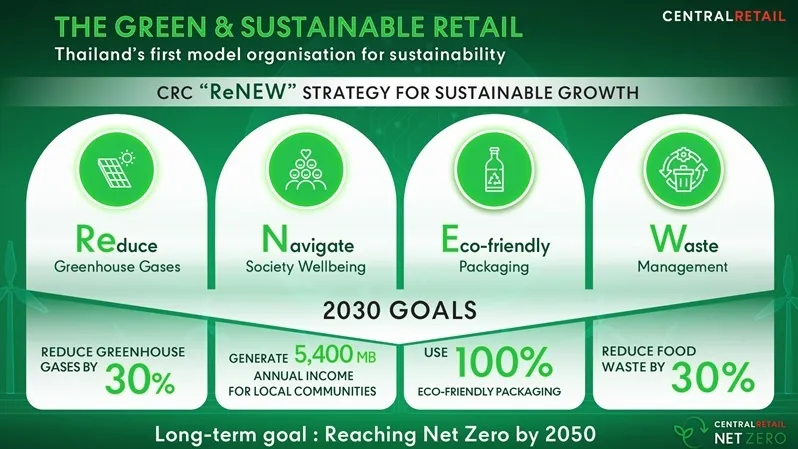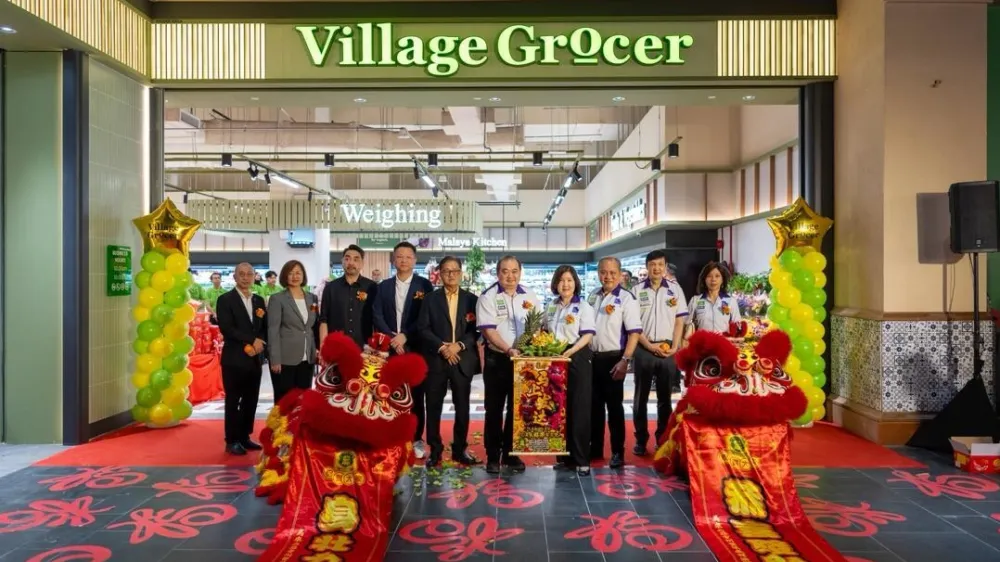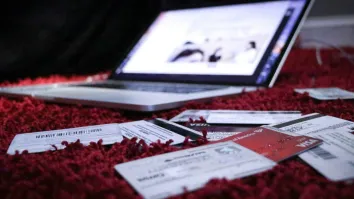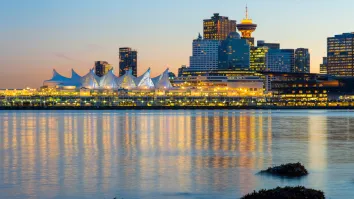
Central Retail unveils sustainability goals
It aims to reach net zero by 2050.
Thailand-based Central Retail Corporation has developed the strategies that will drive its sustainability agenda to reach its long-term goal of achieving net zero by 2050.
In a statement, CRC CEO Yol Phkasub said its short-term goals for 2030 and net-zero target by 2050 are composed of reducing greenhouse gases by 30%, navigating society's wellbeing by generating THB5,400 million annually for local communities, eco-friendly packaging across all its businesses, and waste management and reduction by 30%.
“Central Retail’s sustainability commitment starts with embedding sustainable thinking in our internal culture and mindset, building on the highest standards of ESG practices across all levels of employees and throughout the entire value chain of our business,” Yol said.
“We have also placed long-term roadmaps that require consistent action and collaboration across all units,” he added.
READ MORE: Central Retail net profit soars over 470% in Q2
To achieve reducing greenhouse gases, CRC aims to use clean energy by installing rooftop solar modules in malls and stores in Thailand and Vietnam. It plans to generate 30% of its energy from solar by 2026. It also aims to adopt electric vehicles for delivered and adopt energy-saving technologies, amongst others.
In Navigating Society Wellbeing, the company created 438 jobs for people with disabilities last year, and support local communities through the Jing Jai Farmers’ Market initiative in 24 provinces which resulted in tripling household income and generating an income of THB220m for local farmers,
It plans to reuse recyclables to reduce the waste of single-use items and plastic materials. Last year it avoided the use of 160 plastic bags. It also launched a new store format, Expand Tops Green, which distributed organic products.
Central Retail aims to manage its waste throughout its value chain by sharing surplus food that can still be consumed to vulnerable groups. Food waste will be used for fertilisation and biogas production. It will donate PET bottles for recycling and upcycling into other products.
The company also plans to promote Zero Wate society by involving customers and employees in reducing, reusing, recycling, and upcycling waste.



















 Advertise
Advertise





